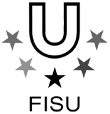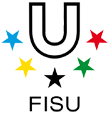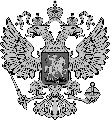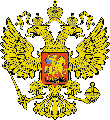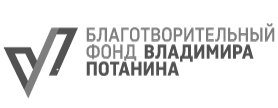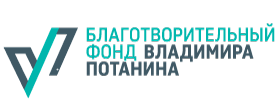The workshop «Understanding requirements and planning for sustainable legacy from Paralympic Games» took place in Moscow on November 24-26, 2010.
The following questions were discussed at the workshop:
— Creating sustainable legacy from the Winter Paralympic Games,
— IPC requirements (including necessary documentation and corresponding regulations) for creating such legacy in Sochi, the region and across the country,
— The examples of creating legacy in staging the Paralympic Games and other large sporting events,
— Different aspects of paralympic legacy,
— Involving stakeholders in the process of creating legacy, organizing collaboration of the Organizing Committee and Sochi Administration in creating legacy,
— Benefits of delivering the Paralympic Games for the host city,
— Other aspects of preparing and holding the Paralympic Games.
The workshops were supervised and led by the Head of Paralympic Games Strategic Projects in the International Paralympic Committee Apostolos Rigas, the Director of the World Academy of Sport Executive Centre in Manchester Chris Solly, Professor of Strategic Marketing in Manchester Business School Gordon Mandry. Programme Manager for the World Academy of Sport Executive Centre Michael Cary performed the function of a facilitator.
Head of Paralympic Games Strategic Projects in the International Paralympic Committee Apostolos Rigas and Director of the World Academy of Sport Executive Centre in Manchester Chris Solly on November 24, 2010.
The Head of Social Medicine, Recreation and Adaptive Physical Culture RSSU Department Professor Vladimir Taktarov and the Head of the Department of RIOU Educational Programmes Doctor of Law Nikolay Peshin took part in the workshop as RIOU experts.
On the first day of the workshop Chris Solly greeted the participants. He introduced his colleagues and said a few words about forthcoming work. In his speech Chris formulated two main goals of the first day of the workshop:
- Planning Games legacy from the city perspective.
- How the Paralympic Games can be used to provide long-term legacy for people with disabilities.
Chris Solly said how long-term strategies were used in organizing sporting events setting the example of two large cities development – Manchester and Melbourne. In particular, he focused on Manchester experience at length and in detail, the host city of Commonwealth Games and other sporting events which changed the image of the city and speeded up social and economic development.
Apostolos Rigas told the participants about delivering the Paralympic Games in Beijing. He mentioned some facts and figures characterizing the attitude of the society to the problem of disability before and after the Games which demonstrated remarkable progress.
The participants were given the number of practical tasks, e.g. to formulate the main lessons of staging the Beijing Paralympic Games, to identify the stakeholders who should be involved for achieving the goals of paralympic movement in Sochi. In group work the participants discussed what Beijing results can be applied in Sochi, who the main paralympic stakeholders are and the ways of cooperation between the Organizing Committee «Sochi 2014» and Sochi Administration.
On the second day of the workshop the Head of the Organizing Committee «Sochi 2014» function «Sustainable legacy» Milana Verhunova outlined the goals of sustainable legacy and concentrated on the Brazilian city Curitiba experience.
Head of the Organizing Committee «Sochi 2014» function «Sustainable legacy» Milana Verhunova discussed the results of group work on November 25, 2010.
Apostolos Rigas presented the main areas of paralympic legacy and the goals to be achieved in every area. He also showed the basic governing documents of the paralympic movement and described their practical application.
The participants were given the following practical tasks – in accordance with their specializations to describe goals and objectives of the Organizing Committee «Sochi 2014» on all the main questions of the programme of sustainable legacy.
On the third day of the workshop Professor Gordon Mandry delivered his reports. He defined the spheres of forming Paralympic games legacy: sport, cultural, social, educational, economic, touristic, ecological and transport. Gordon focused on each of the aspects mentioned, providing the relevant examples from international practice. The participants got acquainted with the key principles of planning paralympic legacy, the necessity of complex and strategic approach for long-term legacy.
The participants of the workshop on November 26, 2010
At the end of the workshop the leaders summarized the results and thanked the OCOG and RIOU staff for successful work.
The workshop became an important milestone in collaboration of the Organizing Committee «Sochi 2014», RIOU and IPC. Using educational methods gave the participants the opportunity not only to acquire deep knowledge on the subject, but also transmit the information to those who will join the Organizing Committee in future and who will deliver the Winter Paralympic Games in Sochi.
On the whole the workshop proved to be successful and met the educational needs of the Organizing Committee «Sochi 2014» and Sochi Administration staff, ensured the high level of competence in different corresponding fields and experience in delivering the Paralympic Games.
According to RIOU expert estimation, the following conclusions were made:
1. The main problem of realizing olympic legacy is the absence of the General Plan and Concept of Sochi Region development during the XXII Winter Olympic Games and XI Winter Paralympic Games.
2. Great efforts should be made to correlate the city infrastructure (and the region) with the OCOG and IPC requirements for providing the principles of accessibility and inclusion for all the participants and guests.
3. Hotel services should be provided considering the principle of equal accessibility and inclusion.
4. The problem of providing rest, entertainment and leisure activity in accordance with the IPC Handbook for all the participants, spectators and guests equally should be solved.


























































